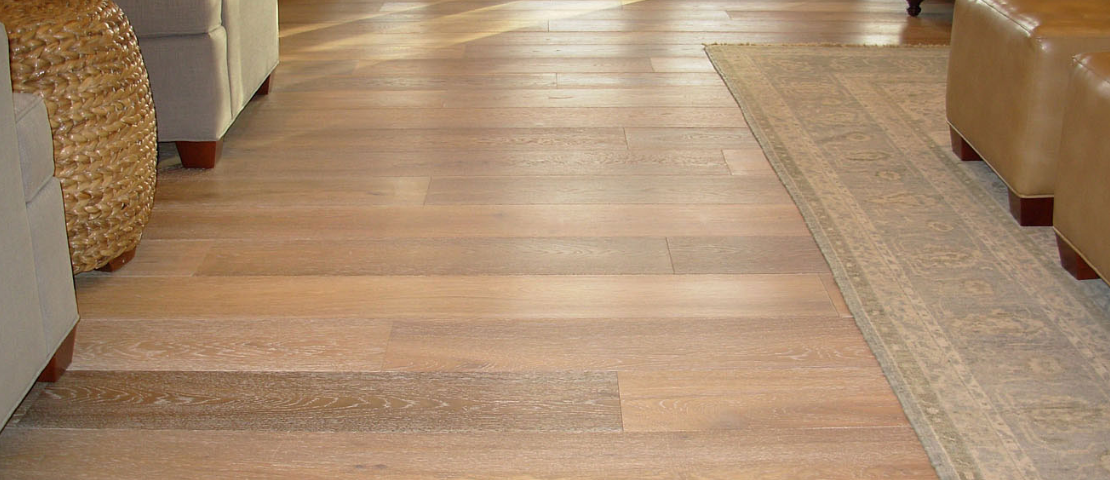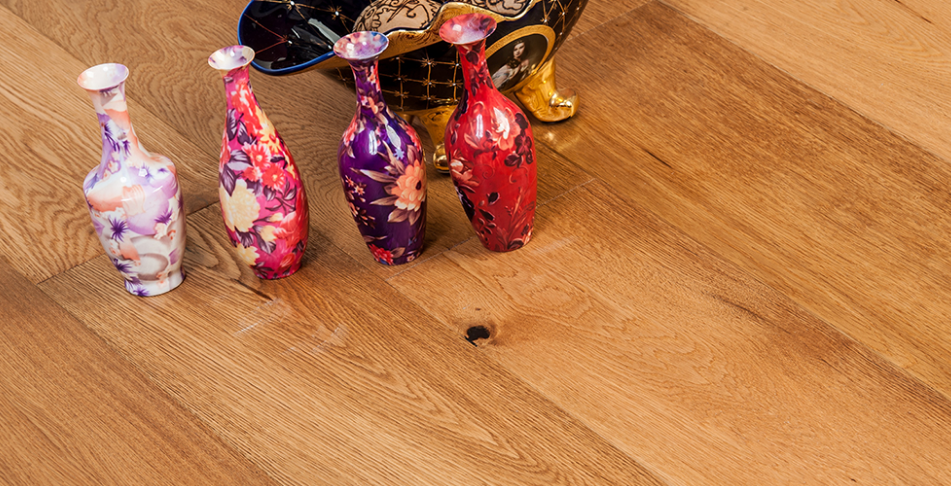Hardwood Floor Finishes

Image courtesy of http://provenzafloors.com.
At Cooper Floors, we offer hardwood floor installation and refinishing with both urethane and oil finishes. Both technologies have their advantages and disadvantages.
Urethane finishes are very durable and are currently the most popular choice. In Europe, natural oil floor finishes have a long tradition and are becoming more popular in Southern California and need to be better understood. The two finishes reflect two completely different approaches – oils work by fortifying and sealing the wood fibers while urethane works by walling them off. With an oiled floor, you are walking on the natural wood surface. With a urethane floor, you are walking on a coating or barrier. Consider this analogy: oil is to urethane as skin is to a raincoat. An oil finish penetrates into the wood and hardens to become an integral part of the floor, just as skin is an integral part of the body. A urethane finish is a protective layer that covers the floor, like a raincoat.
Consumers often ask which type of finish is more durable, urethane or oil, but there is no simple answer to that question.
Natural Oil VS Urethane
There is a common perception that natural oils are more difficult to maintain than urethane, and that is true in the short term, but if you consider the long-term maintenance of the hardwood floor, oil finishes have some advantages.
Polyurethane finishes have improved significantly over the past 10 years and like a raincoat, a urethane finish provides excellent protection. If wood floors show wear and scratches, the finish can be sanded and either top-coated or completely refinished. Many prefinished flooring products with urethane finishes come with a 25-year manufacturer warranty, and should not need recoating or refinishing for many years. The disadvantage being that sanding and finishing usually require that the process is done to the entire room or adjoining rooms; spot treatment is not recommended.
By contrast, an oiled floor that gets damaged in a particular location can be treated locally and in many cases blended seamlessly with the rest of the floor. The entire floor can be refreshed by cleaning with special soaps and then every year or so nourishing the wood with more oil, which will remove most signs of wear and tear.
A urethane-coated floor will, on average, need to be sanded and refinished every 10-15 years. A properly cared-for oil finish will require re-oiling every 1-3 years. So, the maintenance of oiled wood floors is more frequent, but it is far less disruptive because it requires no sanding. Oil soaps and finishes tend to have mild odors, whereas cleaning products for urethane finishes are usually odorless. It is important to mention that the cost of the products used to clean and maintain an oiled floor are considerably higher than the products used to clean urethane finishes, and you have to make sure you use the right products, which are specific to the type of oil that was used on your floor. Feel free to give us a call if you have any additional questions regarding Oil vs. Urethane hardwood floor finishes.
Cooper Floors 714-979-7888 Custom Hardwood Flooring Since 1948

